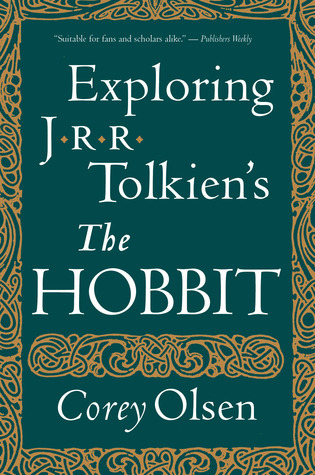What do you think?
Rate this book


318 pages, Paperback
First published January 1, 2012

"...we will take a journey through the story, looking carefully about us as we go. It is easy to rip through a book that you like at top speed; the main thing I hope to do is to slow things down enough to be able to see more clearly what is unfolding in the story as we go. We will take notice of the recurring themes and images [...] We will listen closely to all the songs and poems [...] If we walk slowly and pay attention, we may find that our perspective is enriched by the journey as much as Bilbo's was, and that our eyes have been opened to marvels we never expect to see" (5).This paragraph made me more interested in the book than anything else I had read about it - I definitely know how it's easy to rip through a favourite book! I read The Hobbit more often than any other book. I could benefit from a slowed down, close reading. That is largely what the book is - a close reading of The Hobbit. Olsen makes minimal references to Tolkien's thoughts or works beyond The Hobbit. I thought it interesting that he chose to explicitly not discuss The Hobbit with any close relation to The Lord of the Rings, particularly given the release of The Hobbit films which are being brought more closely in line with The Lord of the Rings films. The publication of Olsen's book likely connects to the release of The Hobbit films, as interest in books on which movies are based always surges when said movie is released. But, this is not a negative observation - The Hobbit is a fantastic work considered by itself. I don't think it always needs to be placed within a greater context and it's refreshing to read something focused solely on the tale I love.

Most people, I have discovered, get nervous at the prospect of a literary critic discussing a work they love. Too many people have had the unpleasant experience in high school English class in which they were made to disassemble works of literature, and they don’t want to see that grisly fate befall a work they actually value. This book, however, is not called Dissecting the Hobbit. I will not be acting as an amateur psychiatrist (or psychic), claiming to tell you what was in Tolkien’s mind and why as he wrote the book. I will not be enthroning myself on the judgment seat as the arbiter of taste, telling you which bits of The Hobbit are good, and which are bad. In the end, this book just sets out to do a little more of what I suppose you already do yourself: reading and enjoying The Hobbit.